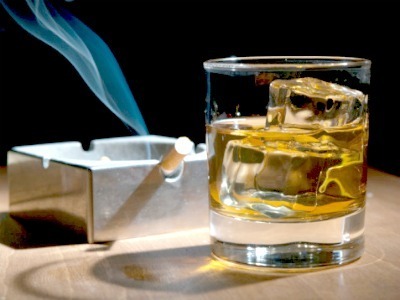TOXIC
TOXIC
If you truly want to measure the severity of an addiction, you don’t look at the amount and frequency of the abuse, but rather the way a person reacts when they are without it.
I have never liked Coffee and so I don’t drink it. To me it tastes like dirty socks and although I am constantly surrounded by a Dunkin Donuts or a Starbucks every other square block of my life, the craze never sucked me in. I have however, seen what it does to people when they don’t have it. A good friend of mine recently quit drinking coffee and described the withdrawal as such:
“On a mental level I felt at first extremely giddy, like I was high and then suddenly I crashed and my mind was a blender of thoughts swooshing around. All of my senses were heightened and I felt over-stimulated to the point of insanity. Then I crashed again and felt dull and dead inside.”- M. F.
This was after eight hours of no coffee. Eight hours.
I’m not immune to the caffeine bug however. I would drink one, sometimes two sodas in the morning to wake me up. Never more than two, never after 3pm. Knowing how bad soda is in general, I decided that I was going to stop drinking it. I knew that I would still need to replace the caffeine at least and since my love for coffee was non-existent, I opted for tea instead, Vanilla Chai to be exact.
Switching was easier than quitting, but I did start to notice by day three of being off of soda, that my body was beginning to exhibit signs of withdrawal. The most common symptoms were headaches, rapid heartbeat, irritability, and oddly enough, my eye started twitching. Now that could have been attributed to the fact that I spend hours in a day staring at a computer screen; but I’ve always done that so I’m going to keep the eye twitching in my list of symptoms.
We all know that addiction rears its ugly head through the use and abuse of alcohol, tobacco, caffeine, drugs (both prescription and non-prescription), food, shopping, adrenaline and even people. These are just some of the most common themes but there are many more. There are even people addicted to things like hand-washing and cleaning which is often more associated with OCD (Obsessive-Compulsive Disorder) but still, it’s an addiction and when taken away, it exhibits the downright nastiest of side effects.
What is it about some people who have the strength to quit something cold turkey; walking away from a 10, 20 or even 50-year habit versus someone who tries and tries to quit but can’t seem to last more than a few days?
“You have to want to quit more than what you’re trying to quit. I walked away from chewing tobacco fifteen years ago, yet I’m around it everyday. I just remind myself that what I want and crave even more than tobacco is the strength to NOT want it. We can choose to be a slave to what we crave or we can choose to walk away. I believe that its 100% mind over matter.”- D.T.
So my fellow readers, what do you think? Do you think it’s all in your head? Do you think that anyone can quit a bad habit if they want too badly enough, or do you think it depends on the habit? Is quitting soda, coffee or nicotine easier than quitting heroine, cocaine or painkillers? Why or why not?
I don’t have the answer, but I do know that with all my physical symptoms from quitting soda, the thing that keeps me strong through the day is constantly reminding myself that I don’t want it. That what I want more than anything else in the world is for it not to have control over me. (And that I will most likely drop at least 20 lbs in time for my sister’s wedding)
“I just try to keep my mind busy by doing as many things as possible with my free time so I don’t have to think about it. That got me through the first year.”- M.L.
A good question to ponder is how do we protect our youth from forming bad habits and taking on addictions? In my personal opinion I think that an active child is a healthy child and not just in the physical sense. Keeping their minds active as well keeps them from wanting to stimulate or dull their senses in other ways. I’ve always thought that if you don’t find a hobby, sooner or later, you’ll find an addiction. After all, idle hands are the devils workshop.
What’s your poison?








